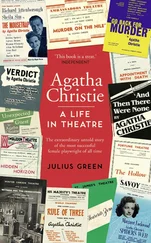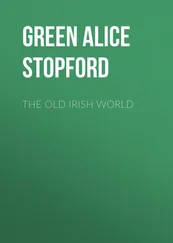Alice Green - Town Life in the Fifteenth Century, Volume 1
Здесь есть возможность читать онлайн «Alice Green - Town Life in the Fifteenth Century, Volume 1» — ознакомительный отрывок электронной книги совершенно бесплатно, а после прочтения отрывка купить полную версию. В некоторых случаях можно слушать аудио, скачать через торрент в формате fb2 и присутствует краткое содержание. Жанр: literature_19, foreign_antique, foreign_prose, Историческая проза, на английском языке. Описание произведения, (предисловие) а так же отзывы посетителей доступны на портале библиотеки ЛибКат.
- Название:Town Life in the Fifteenth Century, Volume 1
- Автор:
- Жанр:
- Год:неизвестен
- ISBN:нет данных
- Рейтинг книги:3 / 5. Голосов: 1
-
Избранное:Добавить в избранное
- Отзывы:
-
Ваша оценка:
- 60
- 1
- 2
- 3
- 4
- 5
Town Life in the Fifteenth Century, Volume 1: краткое содержание, описание и аннотация
Предлагаем к чтению аннотацию, описание, краткое содержание или предисловие (зависит от того, что написал сам автор книги «Town Life in the Fifteenth Century, Volume 1»). Если вы не нашли необходимую информацию о книге — напишите в комментариях, мы постараемся отыскать её.
Town Life in the Fifteenth Century, Volume 1 — читать онлайн ознакомительный отрывок
Ниже представлен текст книги, разбитый по страницам. Система сохранения места последней прочитанной страницы, позволяет с удобством читать онлайн бесплатно книгу «Town Life in the Fifteenth Century, Volume 1», без необходимости каждый раз заново искать на чём Вы остановились. Поставьте закладку, и сможете в любой момент перейти на страницу, на которой закончили чтение.
Интервал:
Закладка:
The theory of State protection of industry grew fast, and by the time of Henry the Seventh its triumph was complete, and the foundations of a new national policy were firmly laid – a policy which was to be largely guided by industrial interests and to represent the claims of an elaborate industrial organization established by law and built into vast proportions by international agreement. The new relation of a sovereign to his people in such a State was seen at the end of the century in the first peaceful king of England whose subjects had submitted to his rule, the only English monarch till then who had not been a strong leader in war and who had yet escaped murder or imprisonment at the hands of his people. It has been the singular misfortune of one of our greatest rulers, Henry the Seventh, to be the first sovereign of the modern pattern who ruled over Englishmen, and his memory has in consequence come down to us shorn of all the conventional glory that tradition had until then declared proper to royalty. He has remained in history as we see him in one of his portraits, a dim obscure figure, sadly looking out from the background of a canvas where the big blustering figure of his son, set squarely in front, seems to elbow all virtue save his own out of recognized existence. But in the delicate, careworn, refined face with its suggestion of unrecorded self-effacement, in the penetrating intelligence devoted to the apprehending of the new problems and the infinite labour spent in solving them, in the inscrutable acquiescence with which, “loving to seal up his own dangers,” 108 108 Bacon’s History of Henry the Seventh, 38.
he carried the burdens that were henceforth to fall to the lot of kings, and the unflinching resolution of his methods, we recognize a new type of royal dignity, and measure the work demanded of rulers who saw the power of mere personal dominion founded on force gradually passing from their hands, and in the changing order of the world were called to take up the leadership of the new commonwealth that was to be.
CHAPTER III
A French proverb of the twelfth century tells us what the world thought in old days of the origin and uses of a navy. “Point de marine sans pelerinages,” men said, seeing in pious penitents its means of support, and in the shrines of St. James or St. Peter or the Holy Sepulchre its destinations. Trade in those days avoided the way of the ocean, and followed the well-known land routes across the heart of Europe, and where the land came to an end took the very shortest way over the water to the next point of solid earth.
And slowly as commerce by sea developed in Europe it developed yet more slowly among the English. All goods that came to them from abroad were carried to their shores by powerful confederations of foreign merchants who controlled the great continental trade routes of the north-west. The “men of the Empire” or the Hanse of Cologne, masters of the highway of the Rhine and of Cologne, the great seaport of the Empire, commanded the whole Eastern trade which then for the most part passed through Germany. 109 109 The men of Cologne had a house in London as early as 1157.
The Flemish Hanse of London, 110 110 Founded before 1240 (Schanz, i. 291-3). Some interesting details are given in Mr. Hudson’s Notes on Norwich (Norfolk Archæology, xii. 25; see section on madder and woad.) For merchants of Lorraine, Denmark, &c., Liber Custumarum, Nunimenta Gildhallæ Londiniensis (Rolls Series), vol. ii. part 1, xxxiv. &c.
which included all the great towns of Picardy and Flanders, and perhaps at one time even Paris itself, carried over sea the wares that were gathered from half of Europe to the great fairs of Champagne. Through these two great companies England first exchanged her wool for certain necessaries such as salt and fish and iron and wood, and for a few luxuries such as spices and silks from the Levant.
And even when commerce swept beyond the narrow seas and passed out of the hands of the men of Cologne and the Flemish Hanse, it was not Englishmen who took their place. If the waterway of the Rhine was forsaken of half its trade as merchants of Northern Italy abandoned the old route across Europe, and instead of sending their goods to the warehouses of Cologne despatched fleets through the Straits of Gibraltar to the ports of the Channel and to Bruges; if the fairs of Champagne languished when armies encamped on its plains and turned them into battle-fields, and the Flemish Hanse of London slowly sank into insignificance – it was only to make way for other competitors of foreign blood. Commerce with the East through the Mediterranean and the Bay of Biscay was seized by the ships of Florence and Genoa and Venice. 111 111 In the beginning of the fourteenth century (Schanz, i. 113-8).
The towns of the German Ocean and the Baltic gathered under the banner of Lübeck into a new Hanseatic League 112 112 See Keutgen, Die Beziehungen der Hanse zu England, 40.
which broke the supremacy of Cologne, claimed the whole carrying trade of the Northern seas, and opened a new line of communication with the Levant. Novgorod became the centre of the Baltic trade, as Alexandria was the centre of the Mediterranean traffic, and the merchants of the Teutonic Hanse offered to the English trader the silks and drugs of the East, with skins and hemp and timber of Novgorod, and the metals of Bohemia and Hungary.
The Mediterranean merchant was the great minister to the growing luxury of mediæval England. “The estates and lords of the realm” and bishops and prelates and parish priests bought from him cloth of gold, rich brocades, vestments of white damask powdered with gold of Venice, 113 113 Boys’ Sandwich, 375; Paston, iii. 436. The foreign trade is illustrated by some of the things in Fastolf’s house; the Seeland cloth, i. 481; iii. 405 – brass pots and chafferns of French making, i. 481 – silver Paris cups, 475; iii. 270-1, 297-8 – blue glasses, i. 486 – habergeons of Milan, 487 – ”overpayn of Raines,” 489 – cloth of Arras, 479 – harness from Almayne, iii. 405 – German girdles, iii. 270-1 – the treacle-pots of Genoa, ii. 293-4, bought of the apothecary. The merchant’s marks were especially noted for fear of adulteration. The grocer, or dealer in foreign fruits, also sold hawks, iii. 55-6. In the reign of Henry the Eighth about a dozen shops in London sold French or Milan cups, glasses, knives, daggers, swords, girdles, and such things. Hist. MSS. Com. viii. 93. “A discourse of the commonwealth of this Realme of England.”
and precious work of goldsmiths and jewellers, new-fashioned glass, and many other fine things – articles that “might be forborn for dear and deceivable,” grumbled the English dealer in homely goods of native manufacture. The whole luxurious traffic down to the “apes and japes and marmosettes tailed, nifles, trifles, that little have availed,” 114 114 Libel of English Policy; Political Poems and Songs (Rolls Series), ii. 173, 172. Fabyan, 630. See petition of burghers against the Lombards, 1455, in Rot. Parl. v. 334
roused the bitter jealousy of the home trader; and even statesmen foretold with alarm the perils that must come to the nation from a commerce which filled the land with fancy baubles and vanities, and carried away in exchange the precious wealth of the people, their cloth and wool and tin, sucking the thrift out of the land as the wasp sucks honey from the bee. But in spite of the hostility of English dealers needy kings anxious to win favour with the great banking companies of Italy diligently encouraged the trade; and (always in consideration of adequate tolls for privileges) freed merchants who came from beyond the Straits from the vexatious control of the Staple; 115 115 Schanz, i. 65. Strangers exporting wool had to pay 43 s. 4 d. a sack, English merchants only 5 nobles or 33 s. 4 d. (Fabyan, 594-5).
allowed their vessels to put into port undisturbed at Southampton instead of being forced to go to Calais; and their agents to travel through the country and buy and sell at will.
Интервал:
Закладка:
Похожие книги на «Town Life in the Fifteenth Century, Volume 1»
Представляем Вашему вниманию похожие книги на «Town Life in the Fifteenth Century, Volume 1» списком для выбора. Мы отобрали схожую по названию и смыслу литературу в надежде предоставить читателям больше вариантов отыскать новые, интересные, ещё непрочитанные произведения.
Обсуждение, отзывы о книге «Town Life in the Fifteenth Century, Volume 1» и просто собственные мнения читателей. Оставьте ваши комментарии, напишите, что Вы думаете о произведении, его смысле или главных героях. Укажите что конкретно понравилось, а что нет, и почему Вы так считаете.












